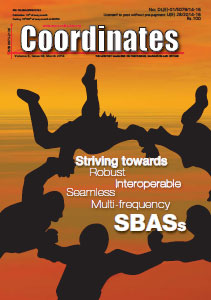Spirent Communications has announced the introduction of Spirent SimSAFE, a software solution that concurrently simulates legitimate GNSS constellations
Aerojet Rocketdyne has successfully propelled the fifth GPS IIF military navigation satellite into orbit on February 20th. It was launched from Cape Canaveral
Project Tango is an ambitious attempt by ATAP, a skunkworks division with Defense Advanced Research Projects Agency (DARPA) roots that’s been peeled away from Motorola
Kazakhstan will launch one communication satellite and two remote sensing satellites in 2014. Moreover, Kazakhstan will commission ground facilities for a remote sensing space system, as well as a high-precision satellite navigation system. www.azernews.az
Ruckus Wireless has unveiled the Ruckus Smart Positioning Technology (SPoT) service. This cloud-based service gives carriers, service providers and enterprises
AT A GLANCE
► Belgium Municipal GIS Project uses TatukGIS Editor
► NASA and JAXA launch new satellite to measure global rain and snow
► Raytheon demonstrates Griffi n Block III missile
STMicroelectronics has released Teseo II single-chip satellite-tracking IC to the European Space Agency (ESA) and the European Commission











 (5.00 out of 5)
(5.00 out of 5)